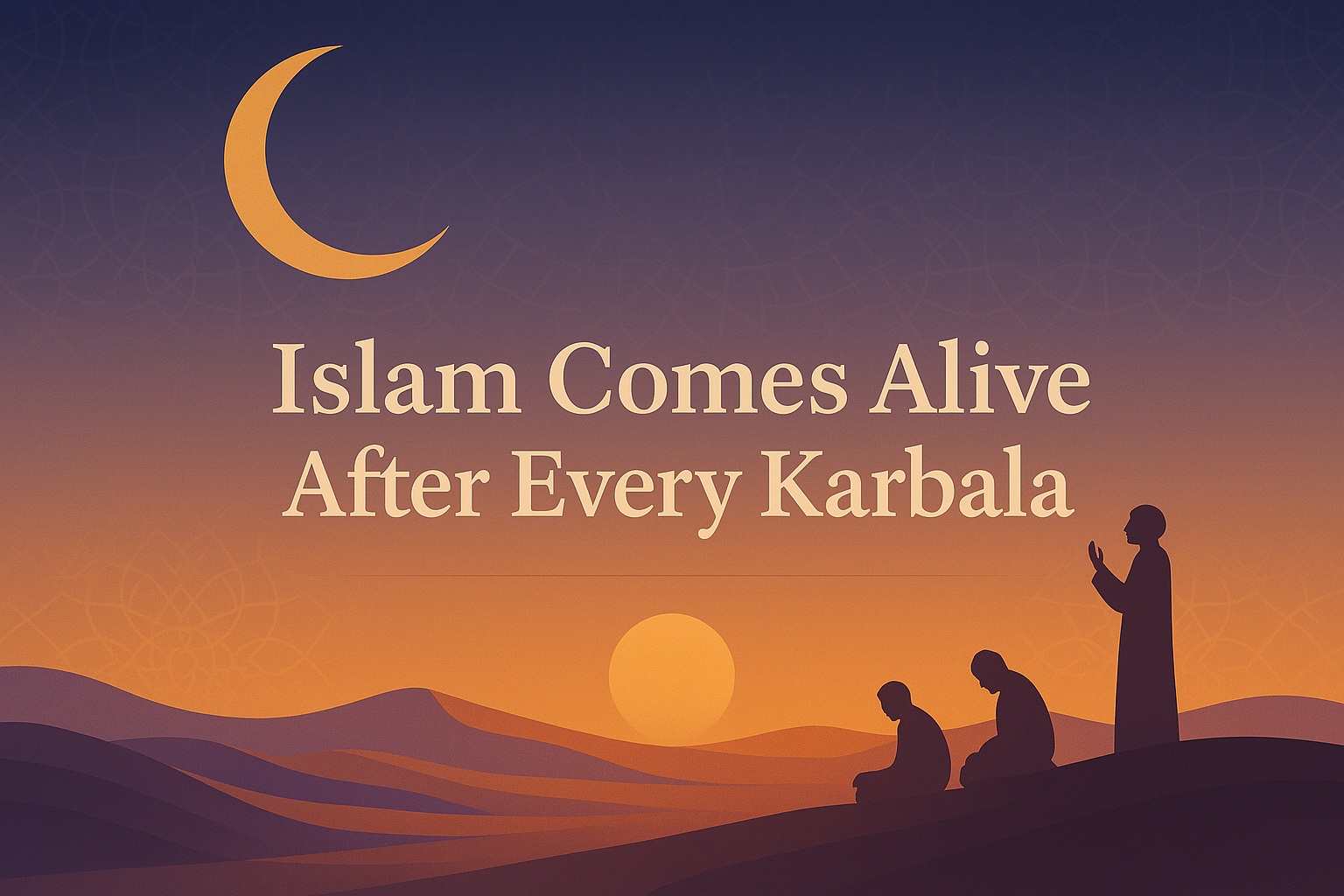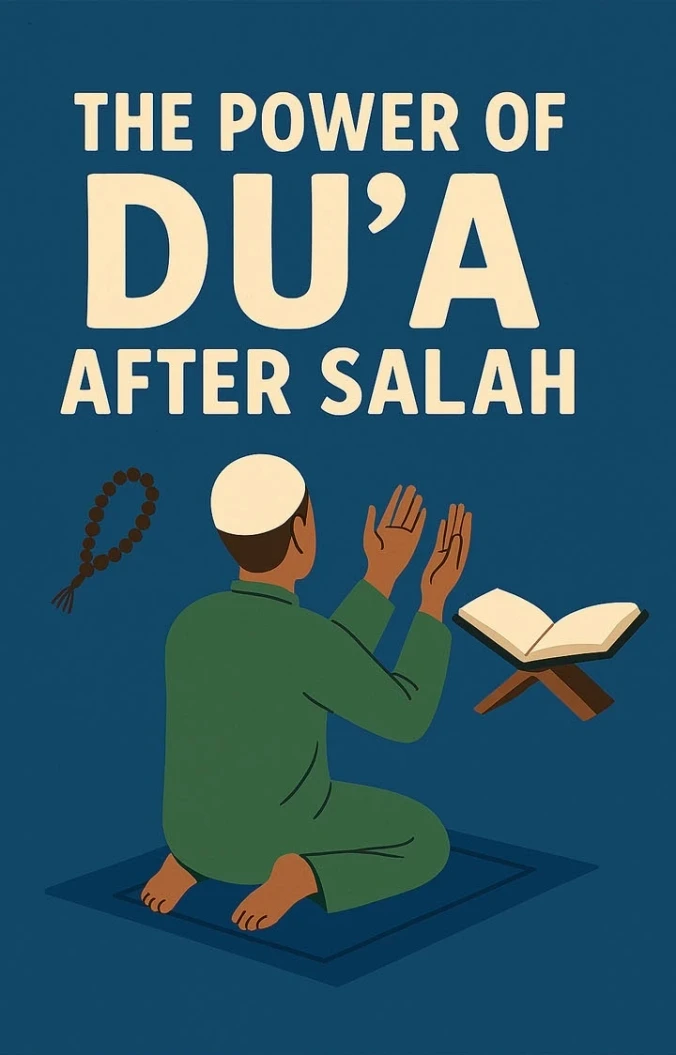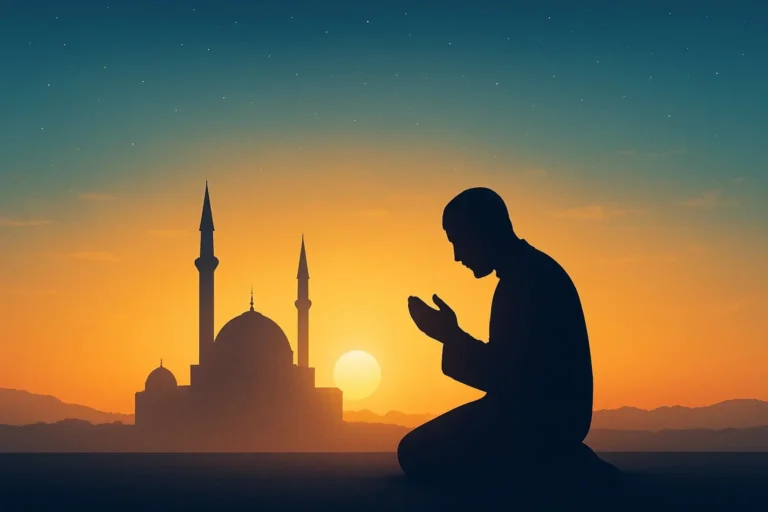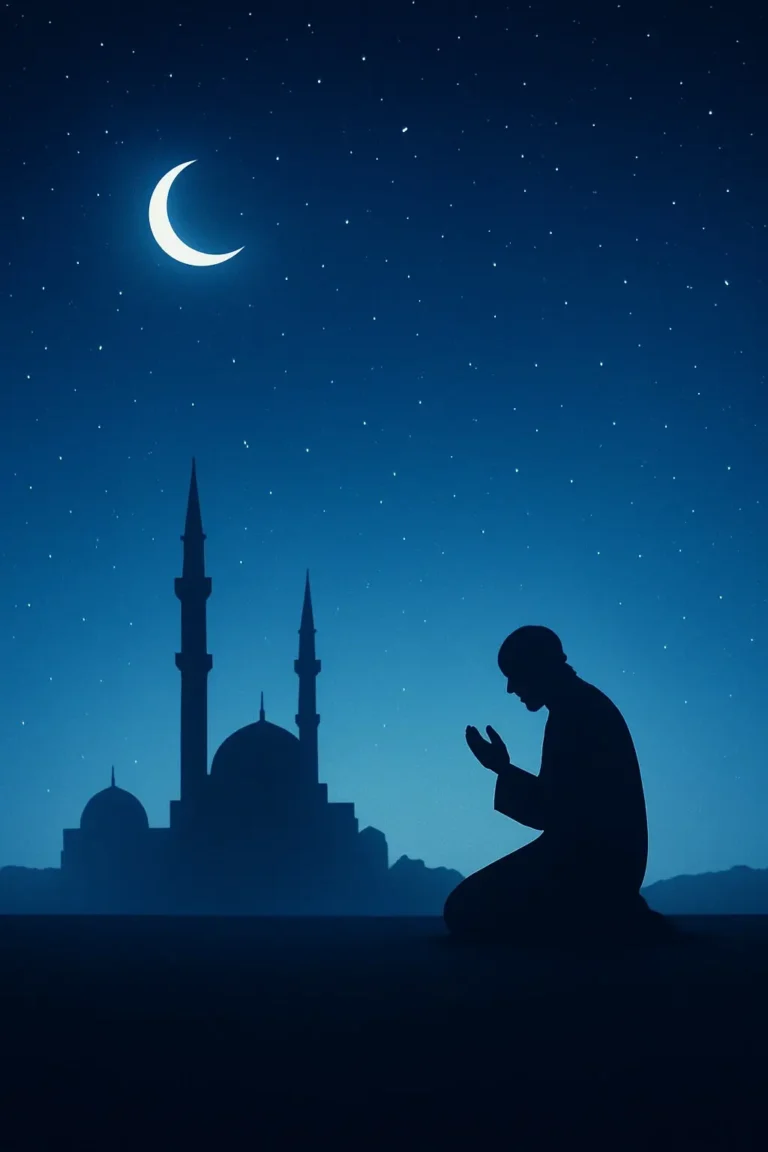Islam Comes Alive After Every Karbala
The Timeless Echo of Ashura
Every year, as the crescent moon of Muharram appears in the sky, Muslims around the world feel a stirring in their souls. The approaching days of Ashura carry with them not just historical remembrance, but a spiritual awakening that transcends time and geography. The tragedy of Karbala, where Imam Hussein (AS) and his companions made the ultimate sacrifice for truth and justice, becomes more than a historical event—it becomes a living, breathing source of Islamic revival.

When Principles Triumph Over Power
The plains of Karbala witnessed something extraordinary on that fateful day in 680 CE. It wasn’t just a battle between two armies; it was a confrontation between two entirely different worldviews. On one side stood Yazid’s forces, representing worldly power, corruption, and the distortion of Islamic values. On the other stood Imam Hussein and his small band of followers, embodying the true spirit of Islam: justice, sacrifice, and unwavering commitment to divine principles.
What makes Karbala eternally relevant is that this same struggle continues in every generation. The forces of materialism, injustice, and moral compromise that Imam Hussein faced are still present today, albeit in different forms. Each time Muslims face these challenges—whether in their personal lives, communities, or societies—the spirit of Karbala offers guidance and inspiration.
The Miracle of Spiritual Renewal
One of the most remarkable aspects of Karbala is how it transforms apparent defeat into eternal victory. Imam Hussein’s physical martyrdom became the catalyst for Islam’s spiritual rejuvenation. His sacrifice served as a powerful reminder that true success isn’t measured by worldly gains, but by adherence to divine principles, even in the face of overwhelming odds.
This pattern repeats throughout history. Whenever Islam faces periods of decline, corruption, or external pressure, the memory of Karbala ignites a flame of renewal. Scholars, reformers, and ordinary believers draw inspiration from Imam Hussein’s example, finding the courage to stand up for justice and truth in their own contexts.
Lessons That Transcend Time
The events of Karbala offer profound lessons that remain as relevant today as they were fourteen centuries ago:
The Power of Moral Courage: Imam Hussein’s refusal to pledge allegiance to an unjust ruler demonstrates that sometimes the most Islamic response is to say “no” to authority when it contradicts divine guidance. In our modern context, this teaches us to stand firm in our principles, whether in business dealings, social interactions, or political participation.
The Importance of Sacrifice: The willingness of Imam Hussein and his companions to sacrifice everything for their beliefs shows us that some things are worth more than life itself. This doesn’t mean seeking martyrdom, but rather being willing to sacrifice comfort, convenience, and personal gain for the sake of justice and truth.
Unity in Diversity: The diverse group of people who stood with Imam Hussein—Arabs and non-Arabs, free people and former slaves, young and old—demonstrates Islam’s universal appeal and its ability to unite people across all boundaries when they share common values and principles.
Each of these situations offers us an opportunity to embody the spirit of Karbala in our daily lives. We may not face the same physical dangers that Imam Hussein encountered, but the moral challenges remain remarkably similar.
Rituals as Renewal
The observance of Muharram, with its majalis (gatherings), recitations, and commemorative practices, serves as more than mere remembrance. These rituals create a space for spiritual reflection and renewal. They remind us of our highest values and inspire us to live up to them in our daily lives.
The tears shed during these gatherings aren’t just expressions of grief for events that happened centuries ago. They’re also tears of recognition—recognition of our own shortcomings, our need for spiritual purification, and our desire to align ourselves with the eternal principles that Imam Hussein represented.
The Continuous Revolution
What makes Islam “come alive” after every Karbala is the understanding that Imam Hussein’s message wasn’t confined to a single moment in history. It’s a continuous call to revolution—not necessarily a political revolution, but a spiritual and moral one. It’s a revolution against the tyranny of our own egos, against social injustice, against the compromise of our principles for temporary gains.
This revolution begins within each individual Muslim who hears the call of Karbala and decides to answer it. It spreads through families, communities, and societies as people choose to embody the values of justice, sacrifice, and unwavering commitment to divine guidance.
A Living Legacy
As we approach the 9th and 10th of Muharram, we’re reminded that Karbala isn’t just a historical event to be remembered—it’s a living legacy to be continued. Each generation of Muslims has the opportunity to honor Imam Hussein’s sacrifice by living according to the principles he died defending.
The true victory of Karbala lies not in the past, but in the future—in every Muslim who chooses truth over falsehood, justice over oppression, and spiritual values over material gain. In this way, Islam doesn’t just remember Karbala; it lives Karbala, and through this living remembrance, finds its eternal renewal.
Conclusion: The Eternal Spring
Just as spring follows winter in the natural world, spiritual renewal follows every genuine confrontation with injustice and falsehood. Karbala taught us that apparent defeat can be the seed of ultimate victory, that sacrifice can be the source of eternal life, and that standing for truth—even when standing alone—is the highest form of success.
As we commemorate these sacred days, let us remember that we are not just observers of history, but participants in an ongoing story. The spirit of Karbala calls us to be agents of positive change in our world, to stand up for justice in whatever form it takes, and to never compromise our principles for temporary advantage.
In this way, Islam truly comes alive after every Karbala—not just as a historical memory, but as a living force for good in the world, renewed and revitalized by each generation that chooses to answer its call.
May this Muharram bring spiritual renewal to our hearts and inspire us to live according to the eternal principles that Imam Hussein embodied. May we find in his sacrifice not just a reason to mourn, but a call to action and a source of hope for a better world.






